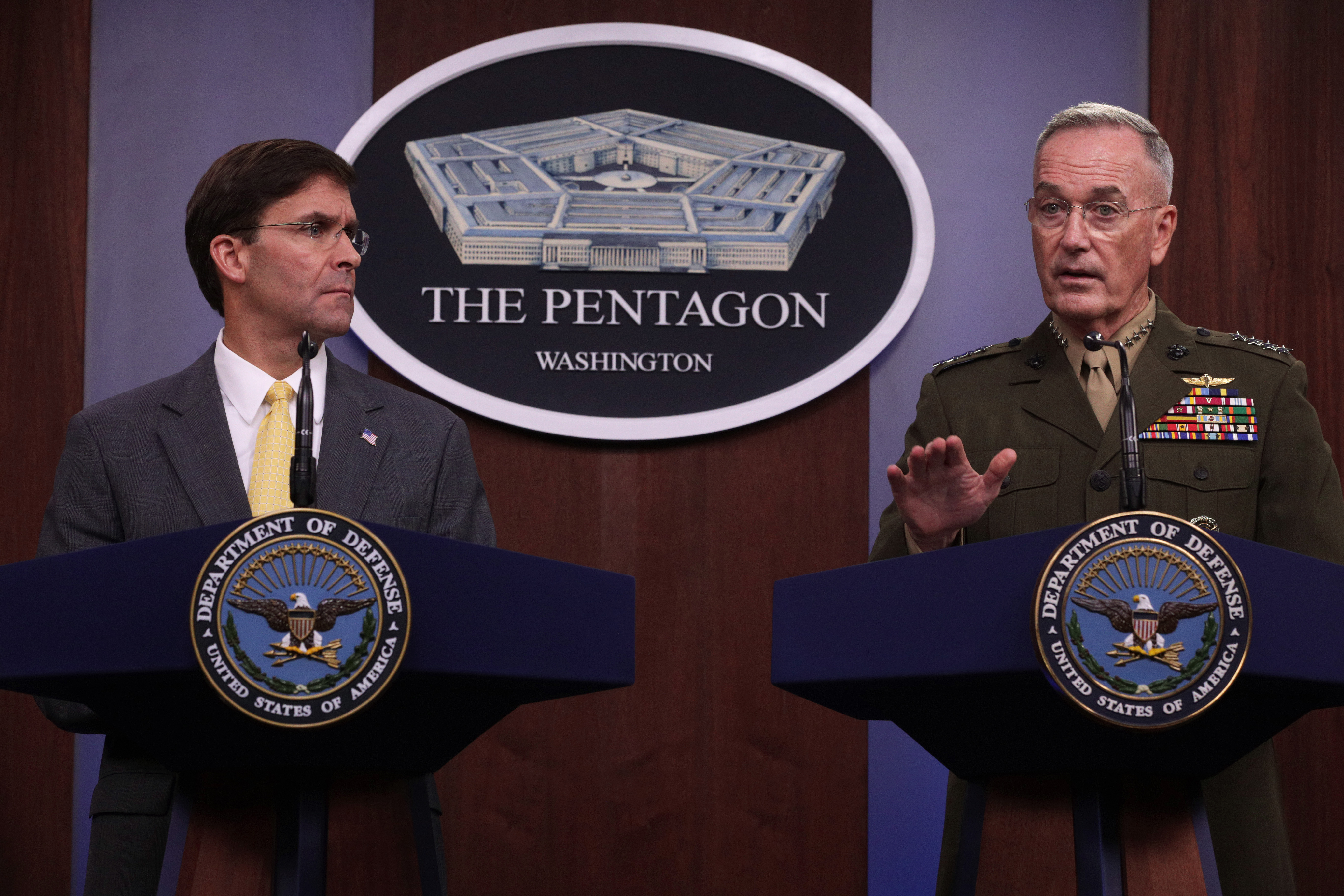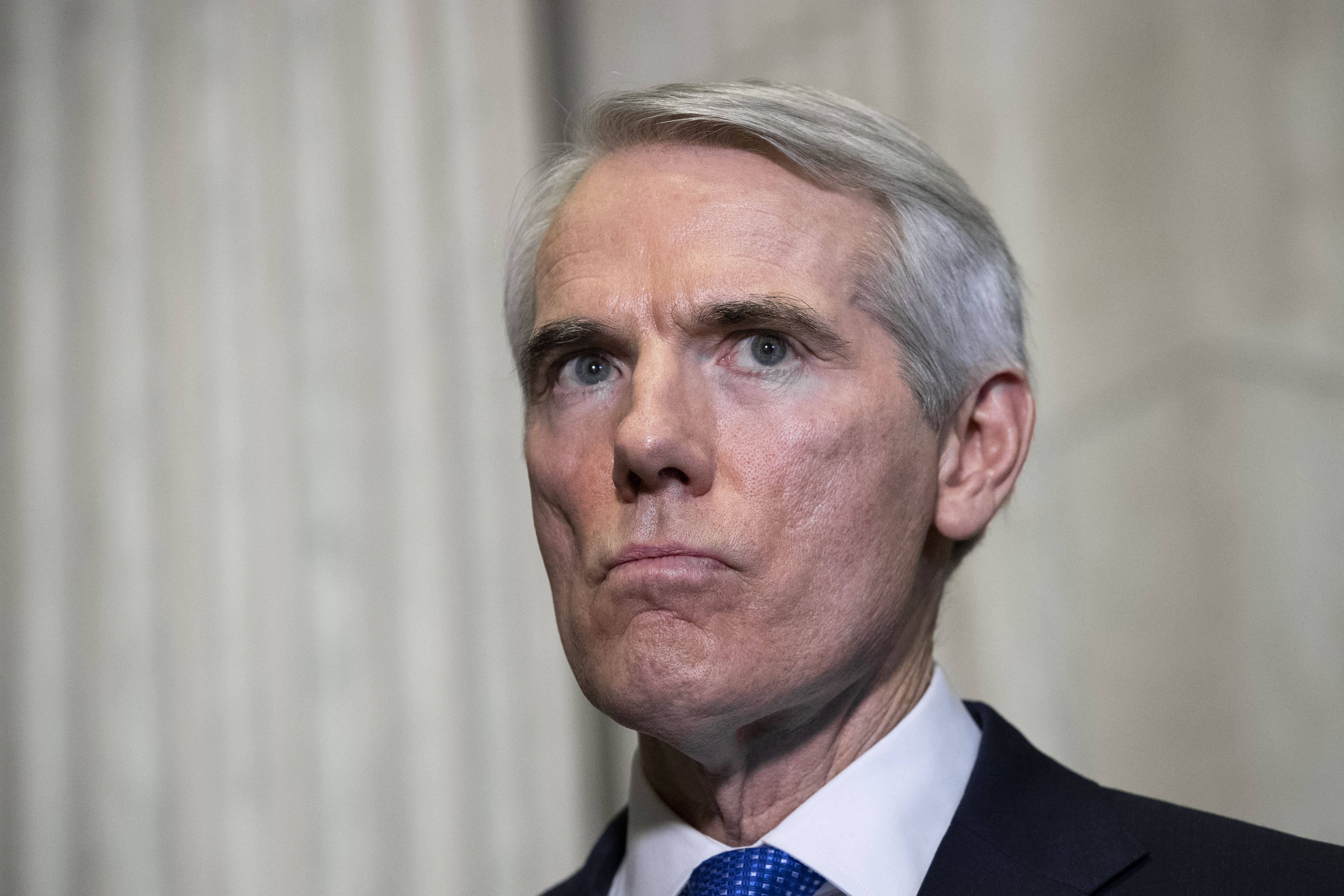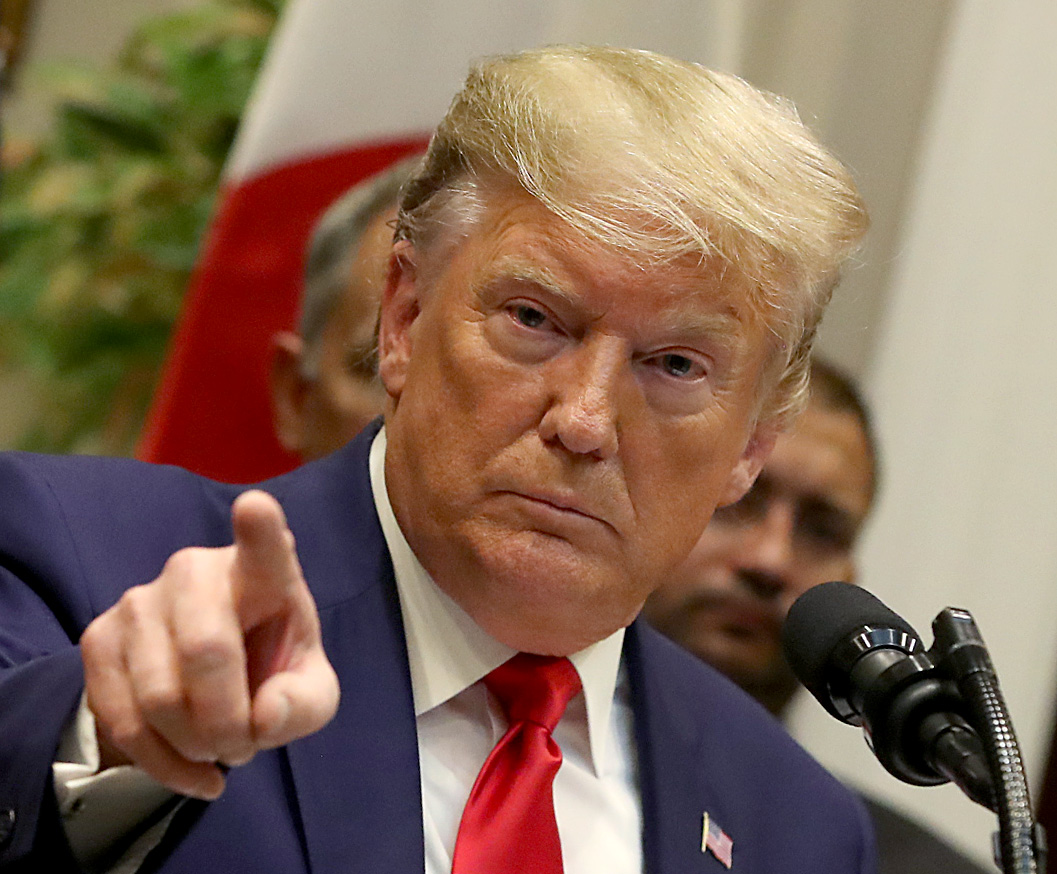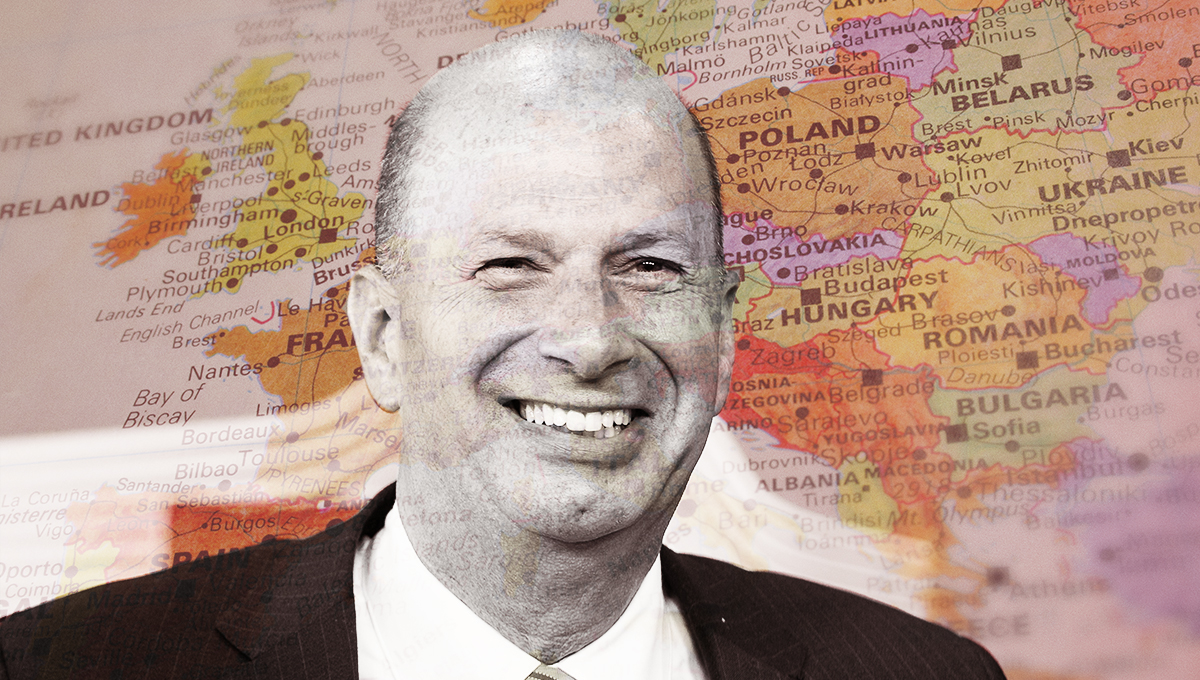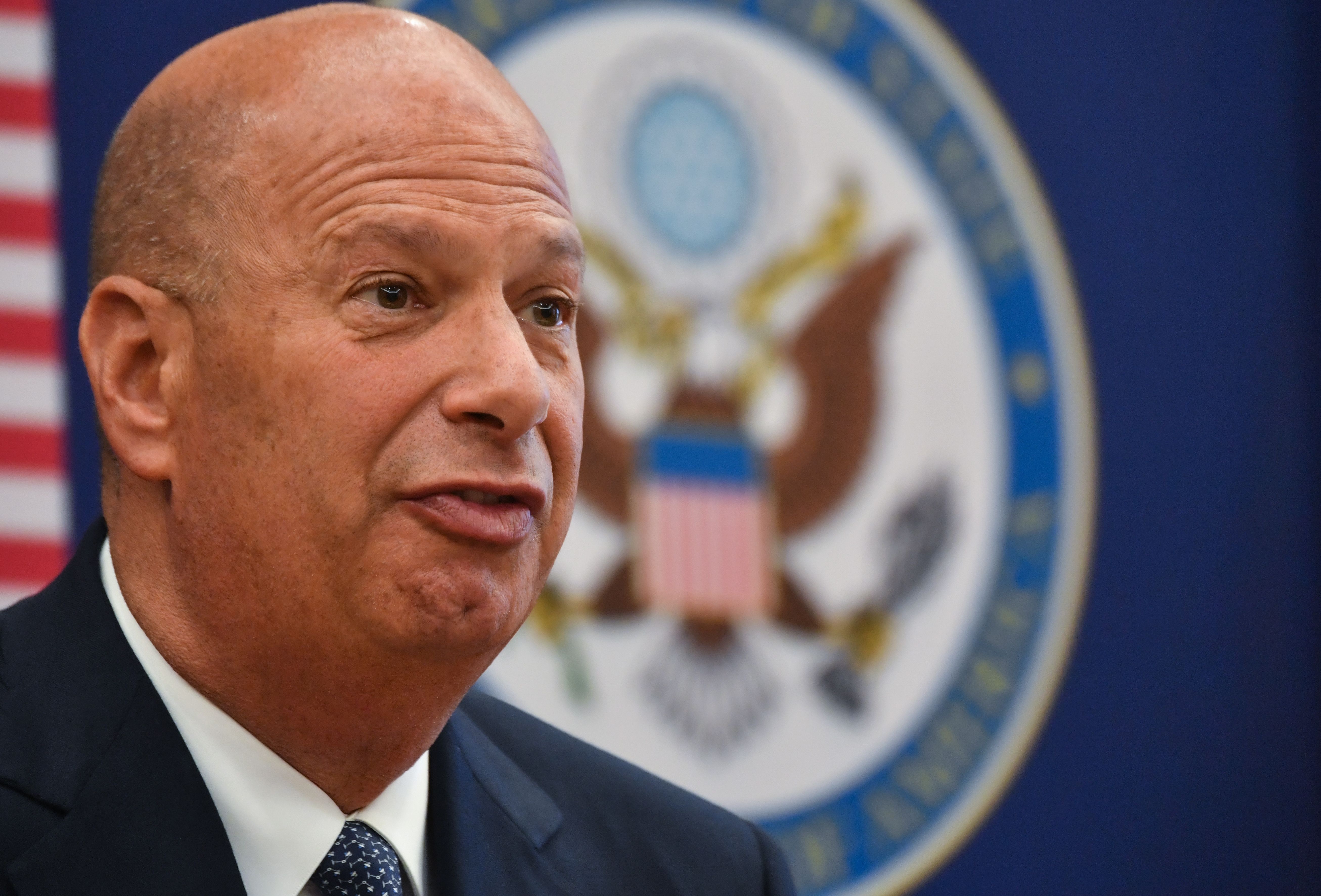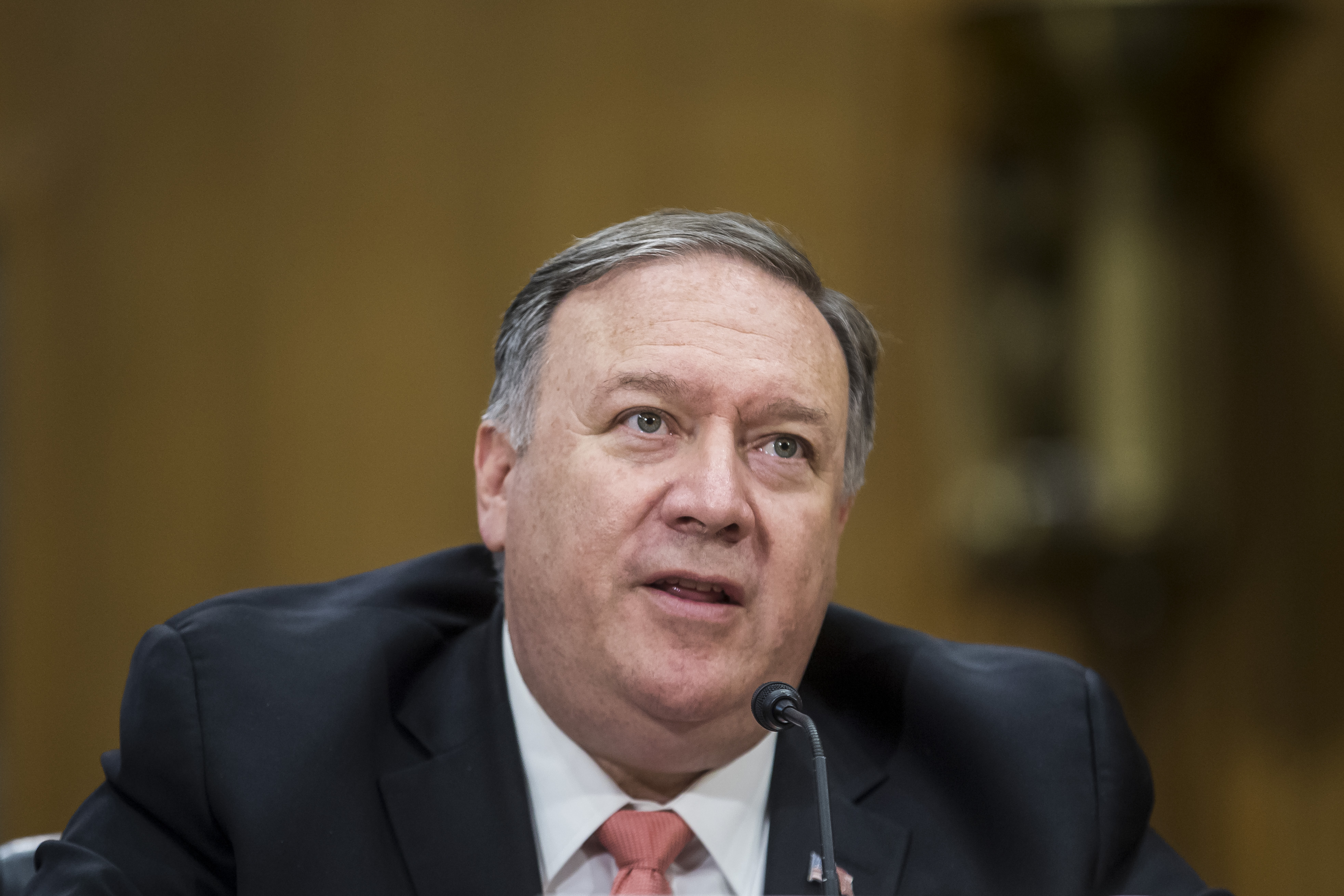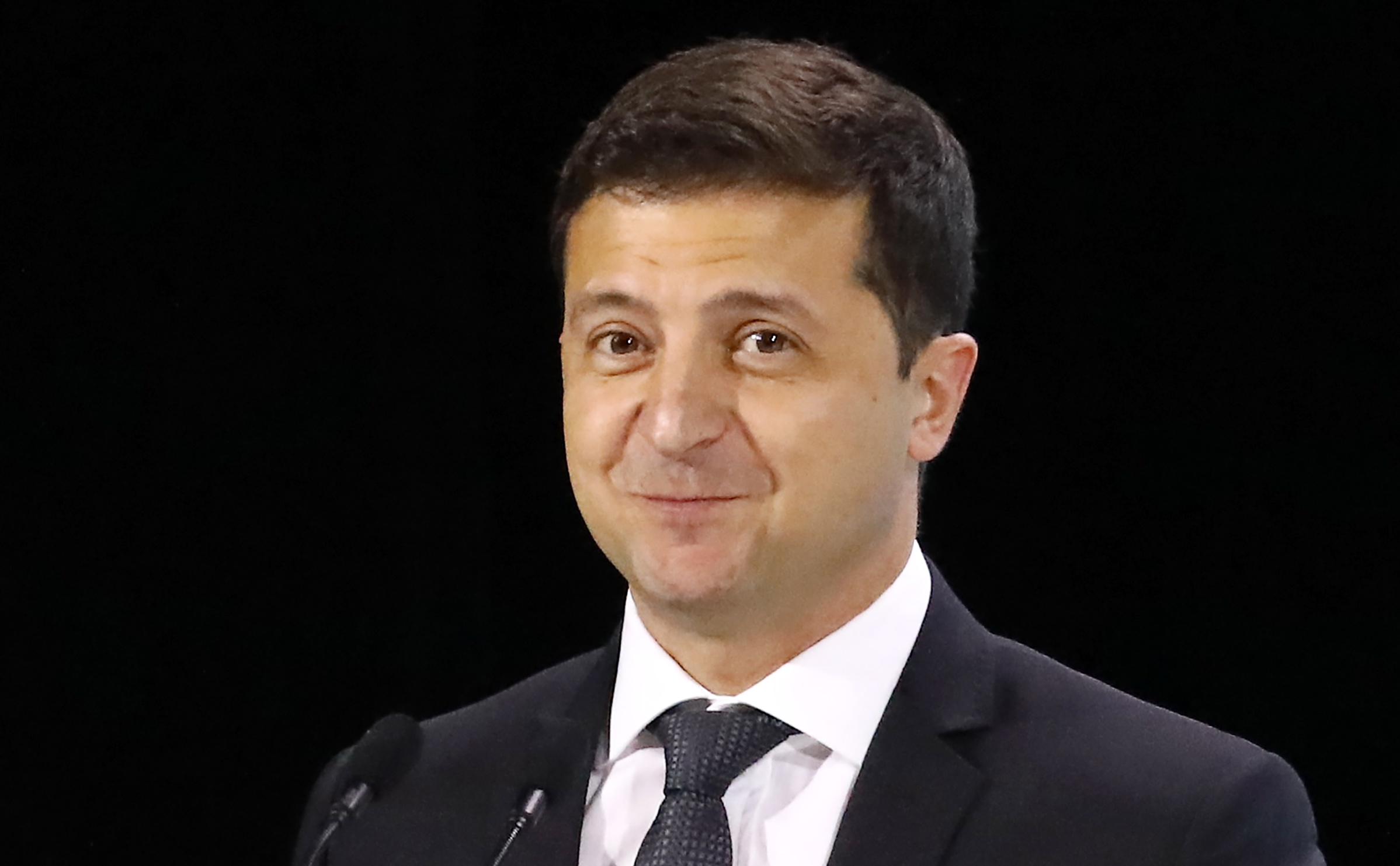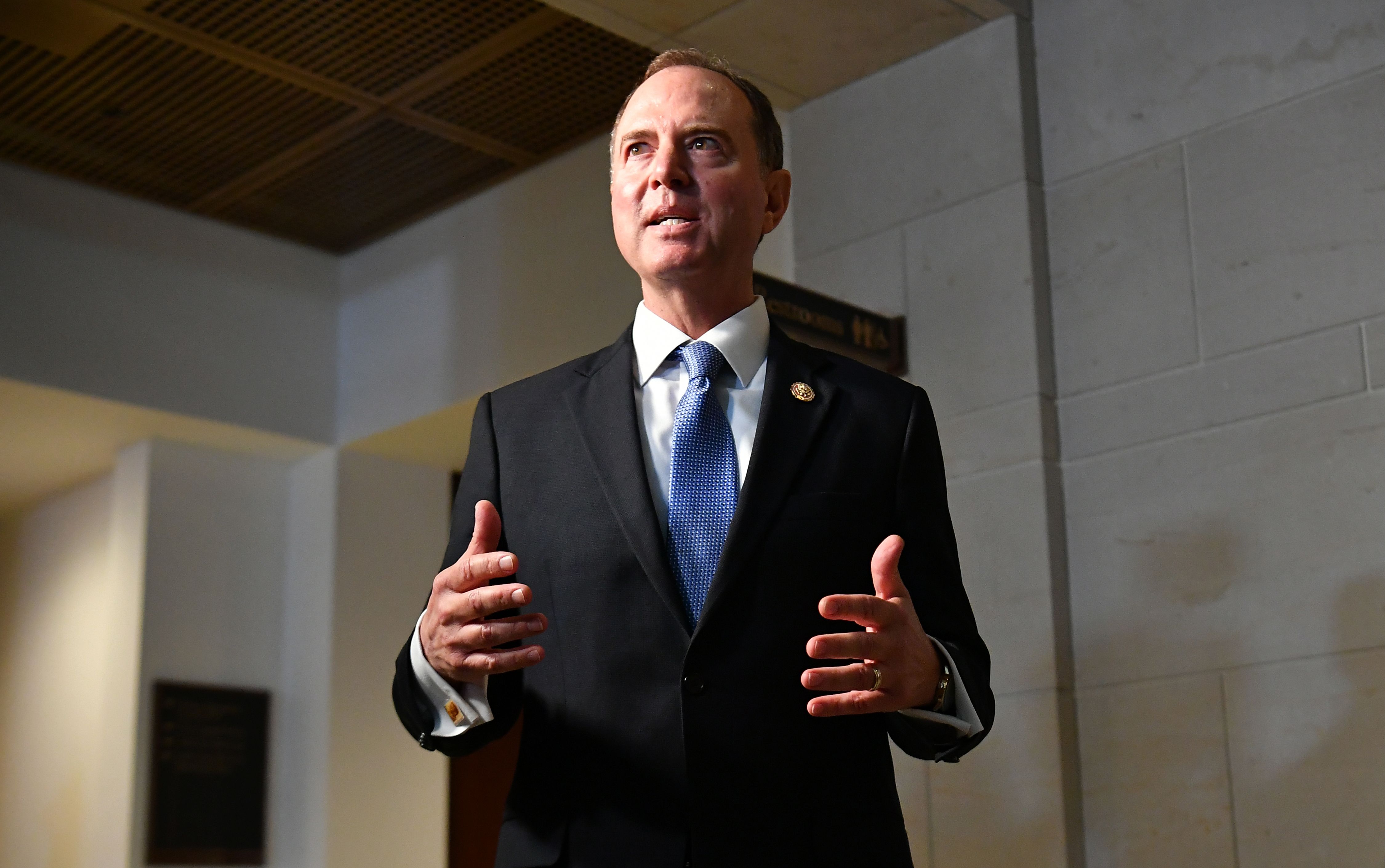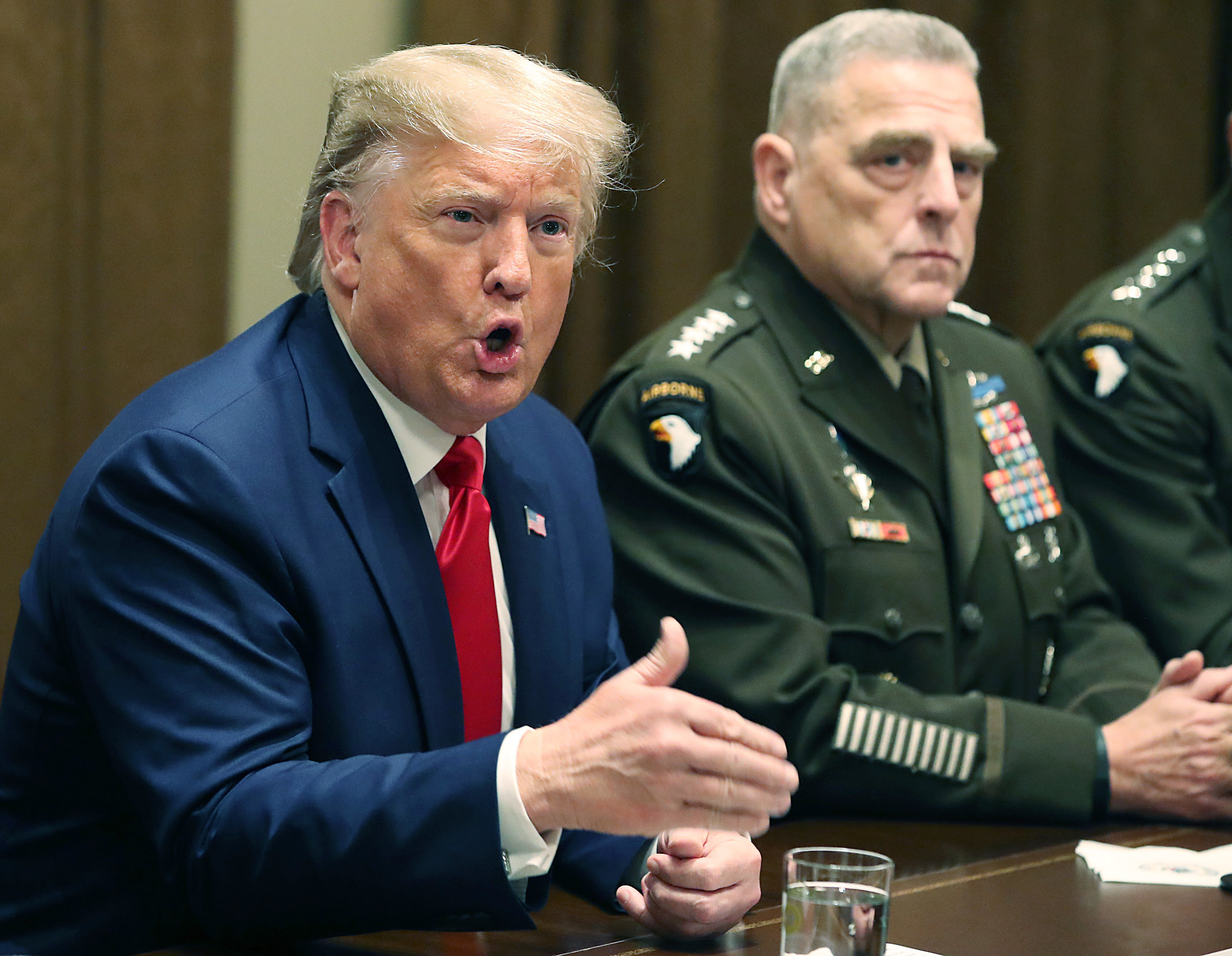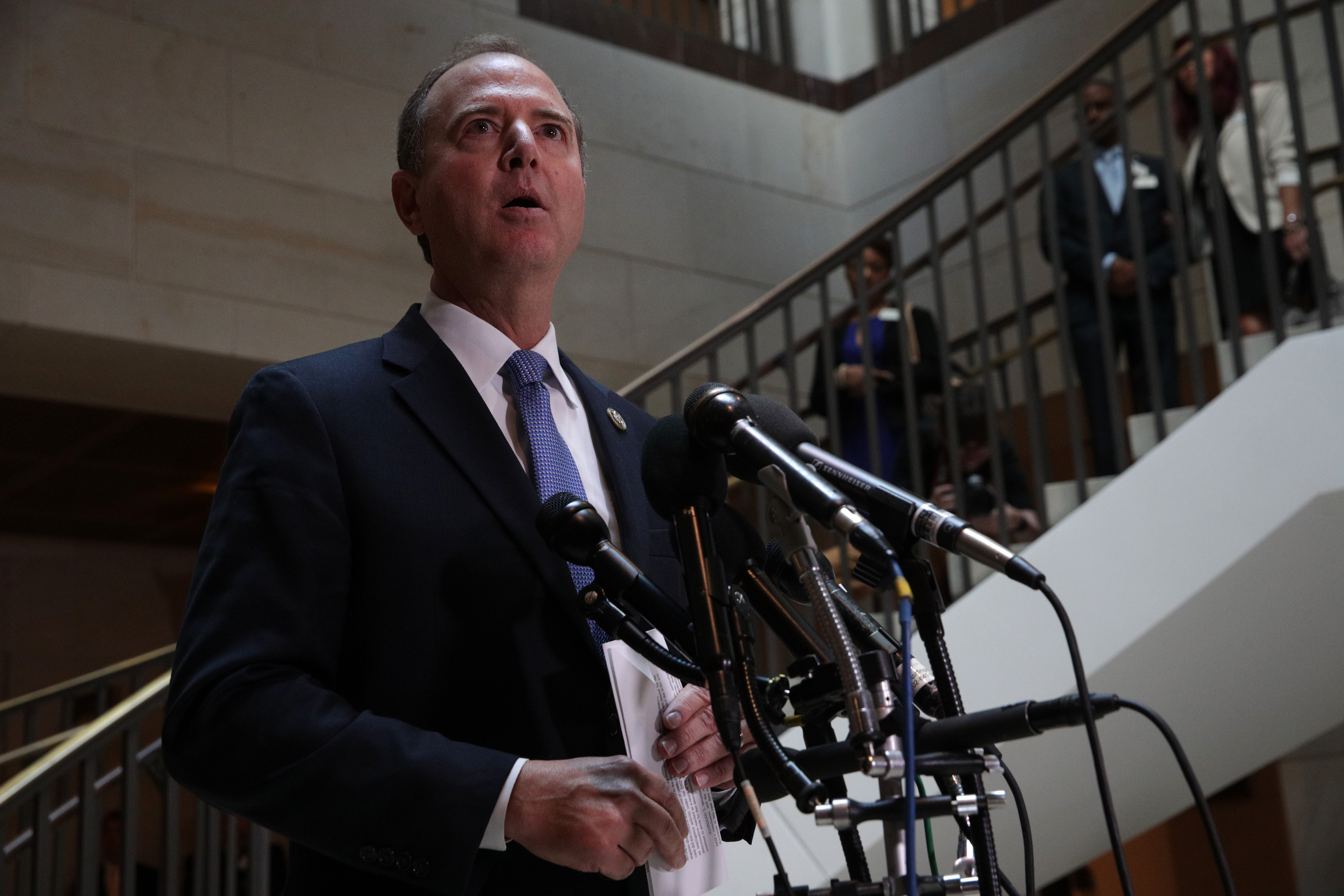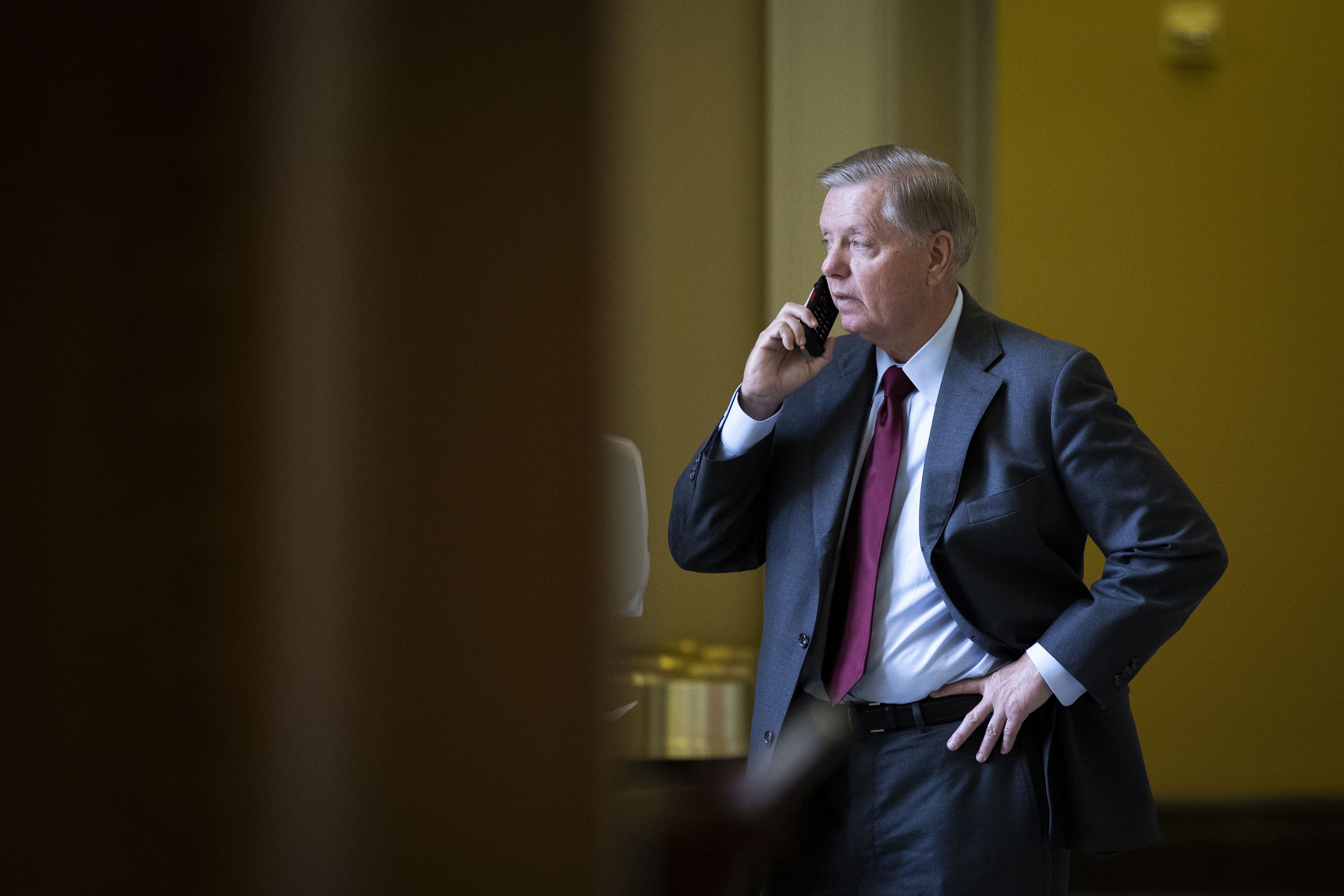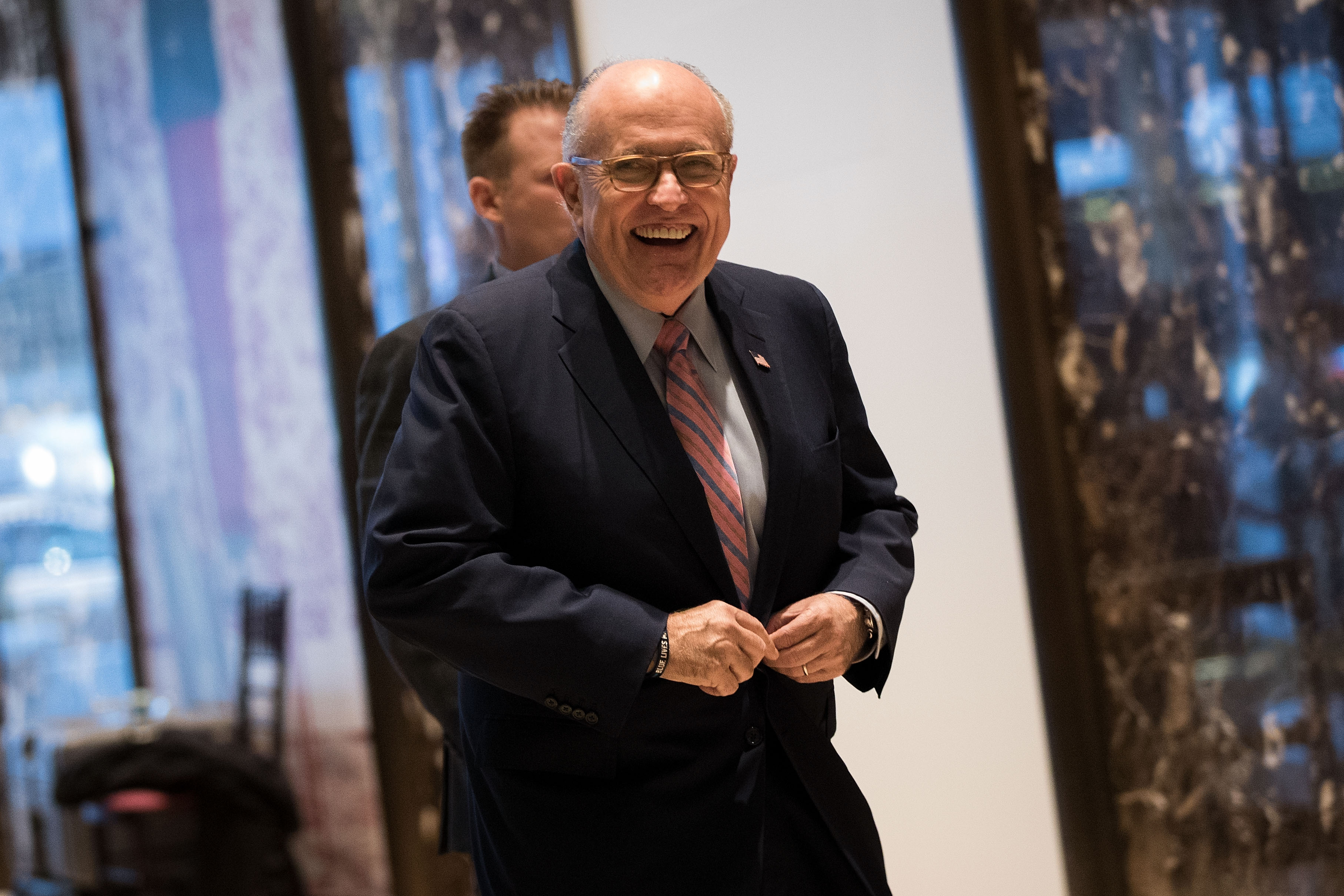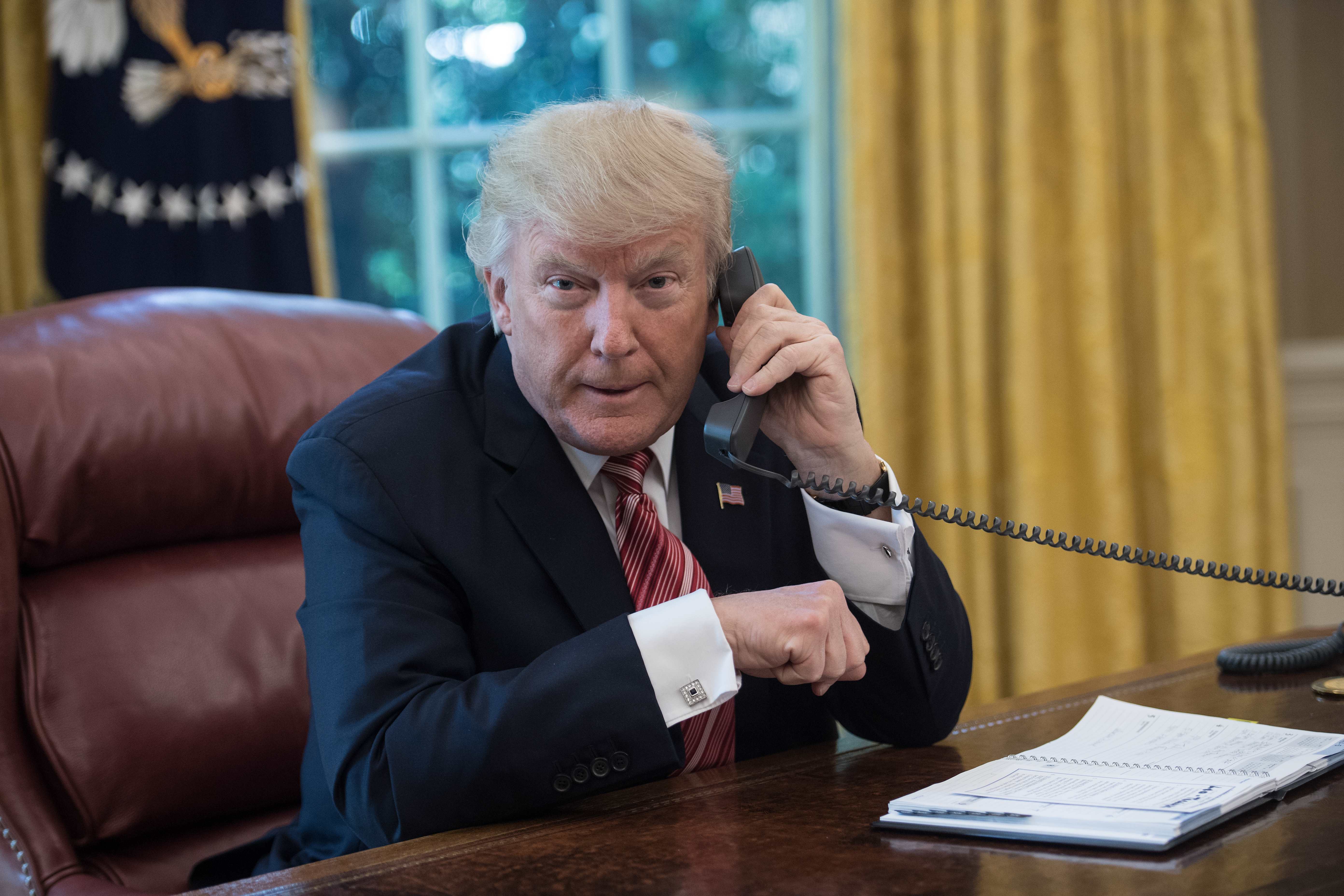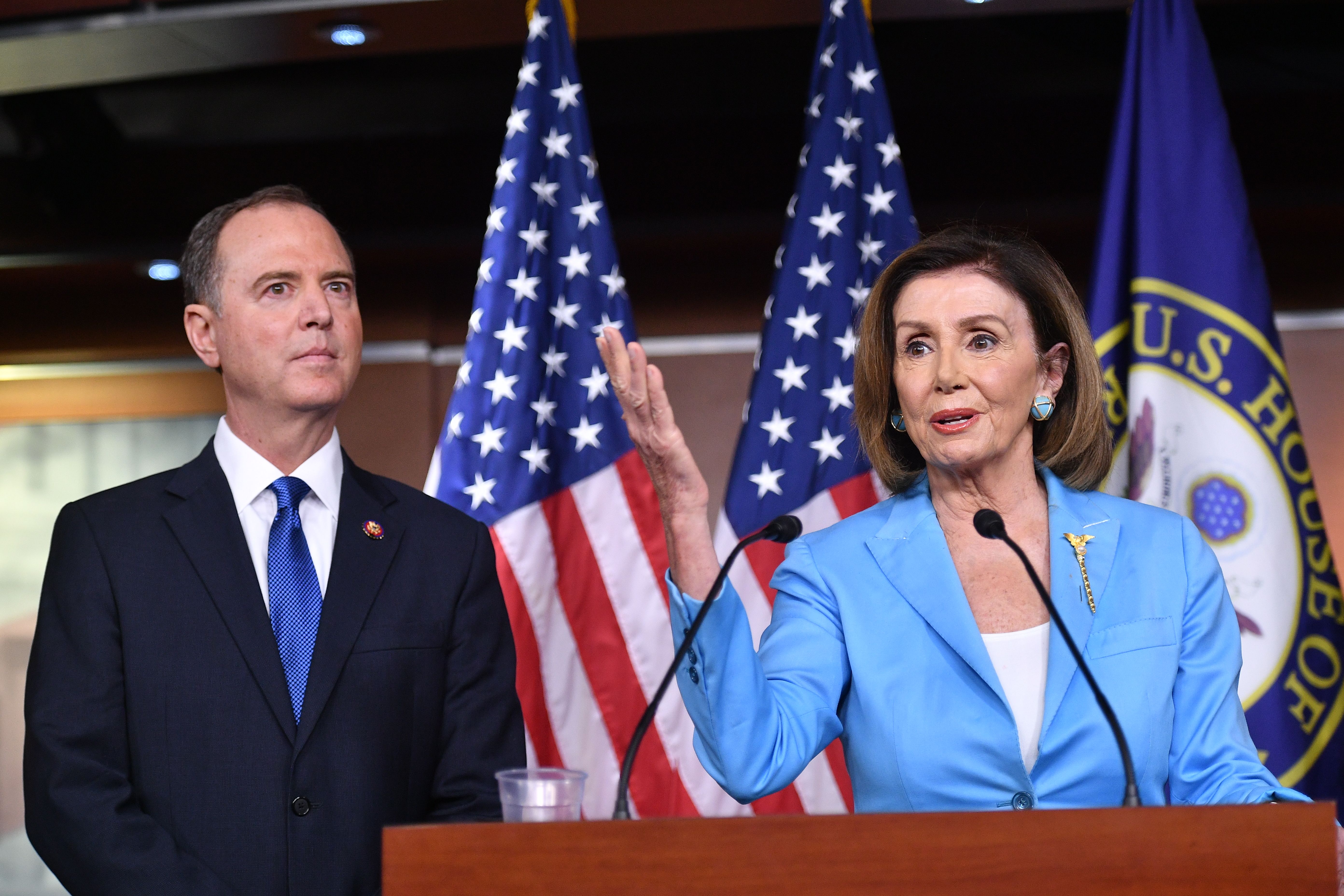Gordon Sondland, The Diplomatic Neophyte At The Center Of Trump’s Ukraine Storm
The State Department blocked U.S. Ambassador to the European Union Gordon Sondland from appearing to speak with congressional investigators behind closed doors Tuesday morning. His appearance would have been part of lawmakers’ examination of Trump’s hijacking of U.S. foreign policy for his own domestic partisan political goals.
Sondland, a Trump appointee, was expected to be a key witness for House Democrats as they pursue their impeachment inquiry into President Trump. But one hour before he was schedule to appear on Capitol Hill, Sondland’s lawyer announced that he would not be showing up for his interview Tuesday, under the direction of the State Department.
The texts and testimony that have emerged so far in the Democratic probe have revealed that not only was Sondland directly involved in encouraging Ukraine to follow the 2020-geared
directives of Trump’s personal attorney Rudy Giuliani, but that he also pushed back on others’ suggestions that what was being asked of Ukraine was inappropriate.
That Sondland was so involved at all — given that Ukraine is not even a member of the European Union — has surprised and flummoxed foreign policy experts.
“I have been trying to figure out how our representative to the EU got so involved in this,” Steven Pifer, a former ambassador to Ukraine, told TPM. Prior to his 2018 appointment, Sondland was a hotel magnate in the Pacific Northwest.
In an interview with a
Ukraine state news agency on July 26, Sondland explained that the Ukraine work was among the “other special assignments” he got from Trump.
That “special assignment” would go on to put Sondland at the center of a firestorm that blew up with Trump’s demands, in a July 25 phone call with Ukraine President Volodymyr Zelensky, that Ukraine investigate Joe Biden and fan the flames of conspiracy theories surrounding the U.S.’s 2016 election meddling probe.
Trump
tweeted Tuesday morning that he “would love to send Ambassador Sondland, a really good man and great American, to testify, but unfortunately he would be testifying before a totally compromised kangaroo court, where Republican’s rights have been taken away, and true facts are not allowed out for the public.”
Sondland went from having almost no on-the-ground experience in Ukraine — by this summer he had visited only two or three times — to hosting Zelensky for dinner and bragging that he was one of Trump’s “three amigos” in charge of managing U.S.-Ukraine relations.
Sondland, a diplomatic neophyte, appears to have stepped into the role in the aftermath of former Ambassador to Ukraine Marie Yovanovitch’s departure, which came at Giuliani’s prodding. Not much has emerged in the House probe about what Sondland was doing before this summer, but what the public records do suggest is Sondland’s engagement with Ukrainian officials intensified after Yovanovitch’s removal in May.
Sondland’s EU appointment fits the mold of the longstanding, albeit slimy, practice of elevating political donors to ambassadorships under the administrations of both parties. Sondland had backed out of his support of Trump during 2016 campaign —
objecting to Trump’s attack a Gold Star family — only to route a total $1 million into Trump’s inaugural committee through companies that obscured his role.
Exactly why he was tasked by Trump to get directly involved in the administration’s Ukraine relationship is unclear‚ but Sondland’s maneuvering to take the reins of the U.S. Ukraine policy was particularly irritating to more experienced State Department officials,
according to a Washington Post report.
A still-anonymous whistleblower identified Sondland — along with Ukraine special envoy Kurt Volker, who sat for a House interview Thursday — as trying to “contain the damage” that was being done by Trump and his allies in their efforts in Ukraine to dig up dirt on Trump’s political rivals.
That may be a charitable reading of Sondland’s motives, despite Volker’s claim that he was unaware of of the political motives underlying Giuliani interest and particularly his desire to muddy up Biden, whose son Hunter served on the board of Ukrainian energy company.
The public record of what Sondland believed about the pressure campaign — which may have included a Trump-ordered freeze on military aide — is at best mixed.
On Aug. 30, Sondland told Sen. Ron Johnson (R-WI) that the aid was being used as leverage for an investigation into the origins the 2016 Russia probe,
according to Johnson’s account to the Wall Street Journal. The claim alarmed Johnson and prompted Johnson to call the President, who denied a quid pro quo, Johnson said.
A little over a week later, when Bill Taylor, a career U.S. diplomat who had been brought to Kyiv with Yovanovitch’s ouster, raised concerns about a quid pro quo, Sondland rejected the idea but quickly sought to end any written conversations about the claim.
The exchange was one of several times Sondland brushed off Taylor’s discomfort with where things were headed and at least the second time that Sondland instructed Taylor not to continue those discussions in writing.
What is evident from the texts was that Sondland spent all summer trying to secure a public confirmation from Ukraine that the country would investigate the 2016 U.S. election and Burisma, the Hunter Biden-linked company.
Despite Trump’s claims denying a quid pro quo, the exchanges with Sondland spell out that, in order for the White House to nail down a Zelensky visit to Washington, Ukraine would have to put out a statement announcing the probes.
In one exchange, Sondland alluded to a “deliverable” Trump wanted when asked what prompted the White House to move towards to confirming a visit date.
He then suggested — apparently at the recommendation of Giuliani — that Ukraine provide for him and Volker a draft of that statement to “avoid misunderstandings” about what was being expected of Ukraine, and later wondered whether the draft should be “unequivocal” on probing Burisma and 2016.
Volker told Congress that the idea of statement was dropped when Ukraine refused to add those references to its proposed statement about investigating corruption more broadly.
In September, as the frozen military assistance had turned into a scandal for the administration, Taylor grilled Sondland on what would happen if an “interview” Ukraine was going to give didn’t unlock the aid.
That interview apparently never came to be, but by that Sept. 9 exchange multiple investigations had been launched into Trump’s actions toward Ukraine.
“I never said I was ‘right’ [about the interview],” Sondland told Taylor. “I said we are where we are and believe we have identified the best pathway forward. Lets hope it works.”
